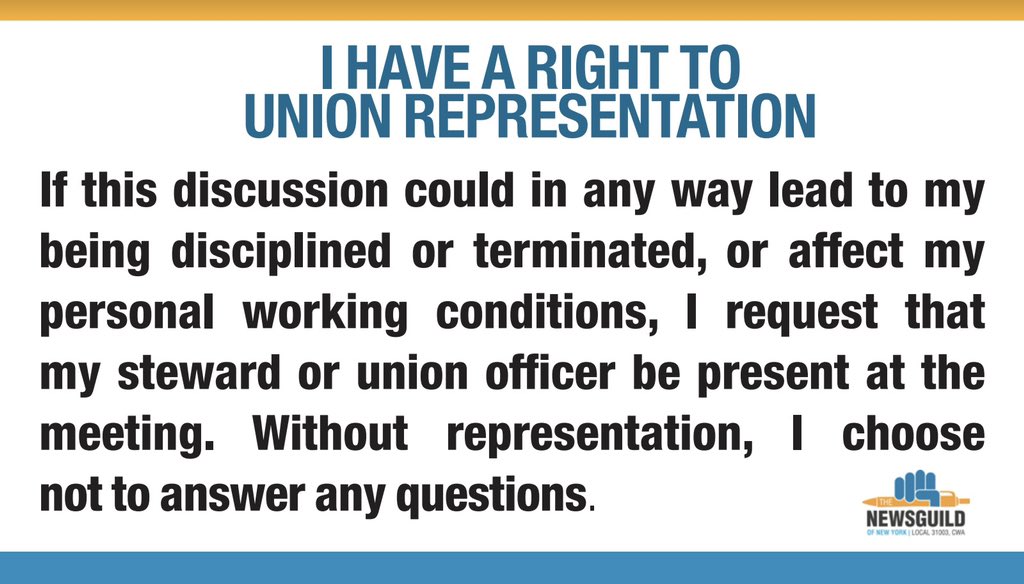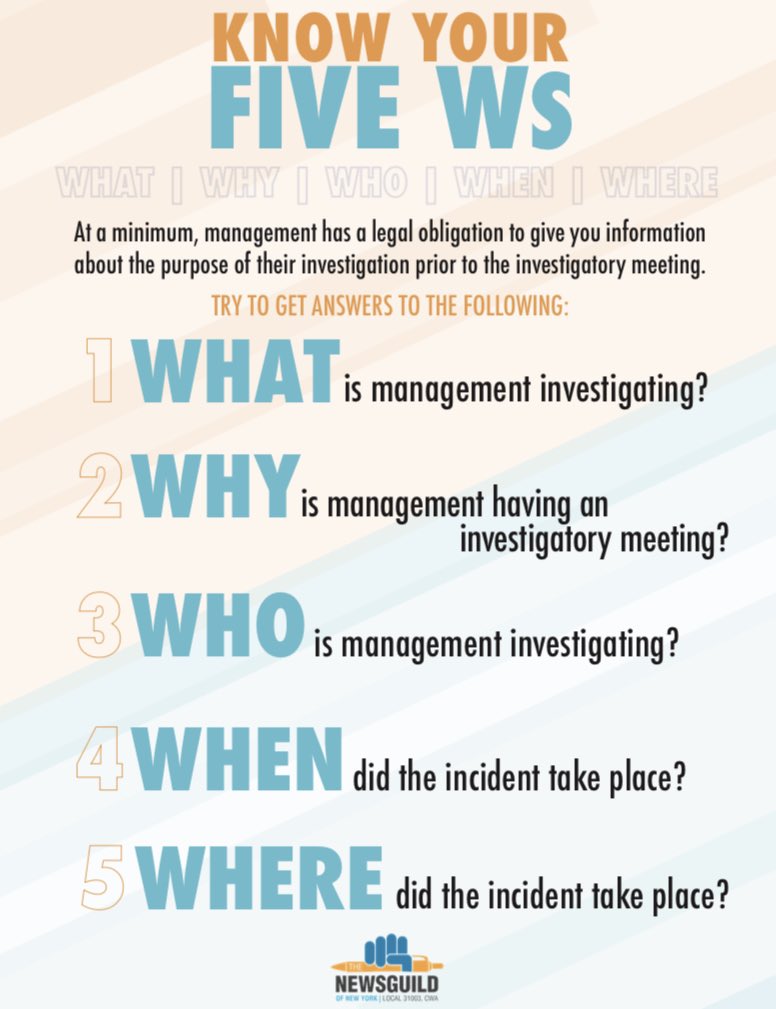
All union Workers have Weingarten rights—the right to demand a steward be in any meeting with the boss that could lead to discipline. Our union is training an army of stewards to protect one another. We’ve put together a checklist to help stewards prepare. Let’s talk about it! 🧵 

Before the meeting: Both the steward and the worker being called into the meeting have the right to know what the meeting is about before it happens. If the worker being called into the meeting does not know, the steward has the right to ask management!
Stewards have the right to meet with their coworker before the meeting with management starts. If the steward is pulled into a meeting that was already under way—call a caucus! Stewards have the right to tell management to wait while they meet privately with their coworker.
Remember, because we have Just Cause in our contracts, all members are considered innocent until proven guilty. Management has to prove their case AND follow the correct process outlined in the contract to ensure fair treatment.
During the meeting, stewards should: Take good notes. Ask clarifying questions. Ask for names of witnesses. Point out any mitigating circumstances the boss isn't considering. Ask for a copy of any documentation management references or shares—stewards have a right to all of it!
If at any point, the steward need more information from their coworker (or if the stewards just wants to help their coworker stay calm)—the steward has the right to ask for a caucus and meet privately with their coworker again!
Ask questions and remember the equality rule: IN THESE MEETINGS STEWARDS ARE AN EQUAL TO MANAGEMENT. Stewards have the right to question everything, a right to ask for documents and copies of everything, a right to stand eye-to-eye and go toe-to-toe with management.
After the meeting: stewards should debrief with the member. Ask them for any additional information needed to develop a grievance if that makes sense.
Disciplinary meetings can be overwhelming and scary, so it’s important to have a steward present. They are in your corner! They can ask questions, push back on bullying questions, and help you keep a clear head.
Being called into an investigatory meeting is nerve-racking! If our coworkers aren’t confident about asserting their rights it can be easy for the boss to steamroll us. It's important for stewards to share Weingarten Rights cards & educate their coworkers about their rights! 

Weingarten meetings are often treated as private, isolated events, but they can also be important organizing opportunities to build collective power! Here's an example from Reuters, where the union made the boss walk “the corridor of shame.” drive.google.com/file/d/1pDjF9W…
• • •
Missing some Tweet in this thread? You can try to
force a refresh





